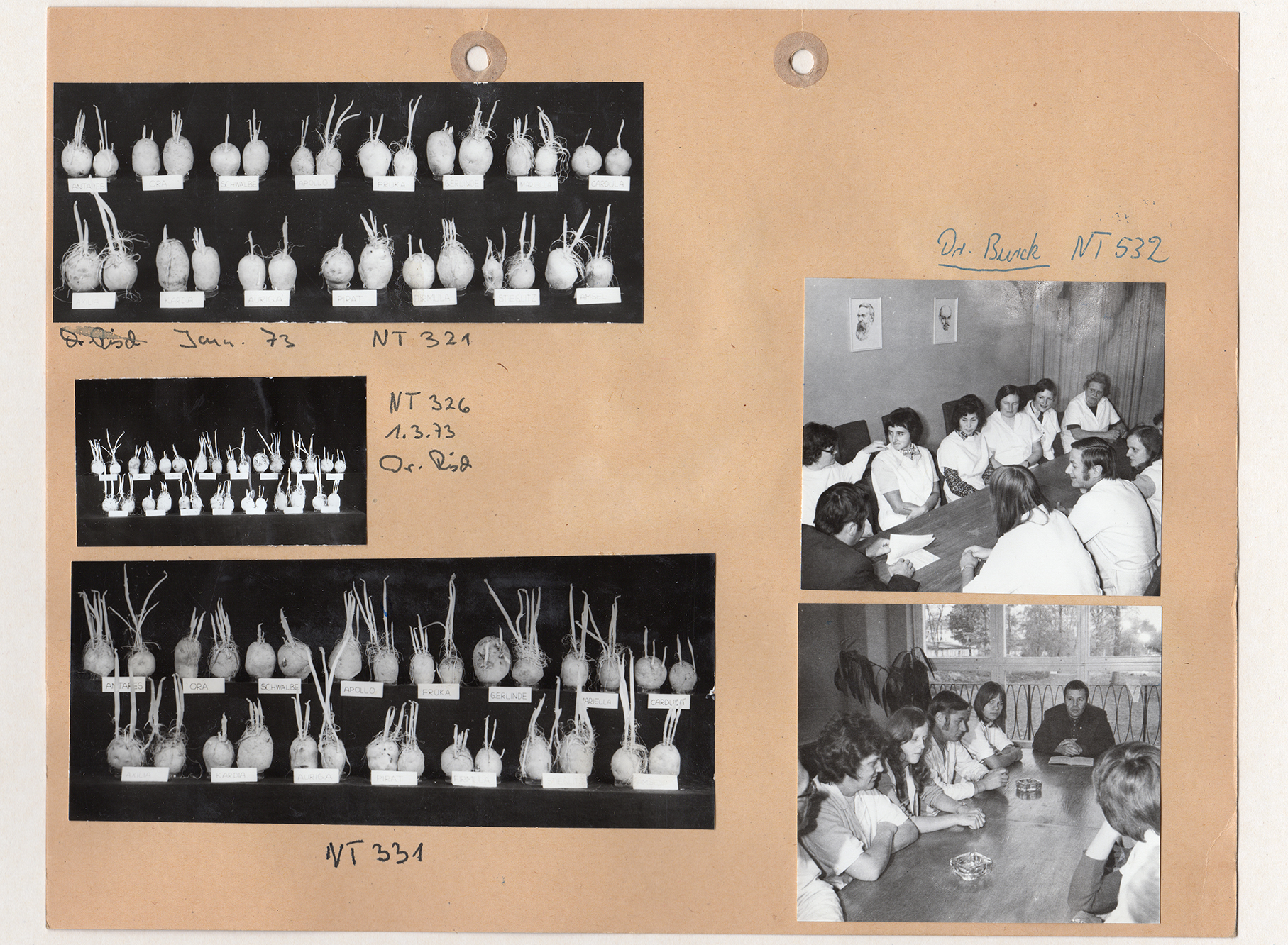Adretta
On Memory as Practice, Potato Breeding, and a Socialist Model Village in the GDR.

A research-based article by Elske Rosenfeld and Åsa Sonjasdotter, published in Parallel Diagonals: artistic inquiry into a landscape. Ed. Mikhail Lylov. Natural, Architectual-Archaeological Museum Reserve Divnogorie. 2016.
PDF of article →
Introduction
Two different archives are at the heart of this story, told in text and images. One is the photographic archive of the former Institute for Plant Breeding in Groß Lüsewitz in the GDR. The Archive was compiled by photographers employed by the Institute between 1948 and 1990. Its purpose was to document the development of the Institute, as one of the major centres for agricultural research in the Eastern bloc, and of the village itself, as a model village for the industrialisation and urbanisation of agriculture in the GDR. The archive was thrown on a rubbish dump when the Institute was closed down in 1990, and saved by a former employee. It was preserved thanks to the personal efforts of members of the village history club.
The second archive is the potato Adretta, which was developed at the Institute and certified here in 1975. Like all cultivated plants, Adretta is an archive of a breeding process, a continuous human-plant-dialogue, dating back to pre-historic times when agriculture began. Adretta became a success, because of its robustness, which suited the needs of the large-scale farming units of the planned economy. It was soon cultivated widely, not only in East Germany, but also around the whole Soviet Union. After 1990 it no longer met the requirements of the new, capitalist economy. As an archive, Adretta is fragile. It needs to be replanted each season to survive. But it fared better than the photo archive of Groß Lüsewitz: Adretta has become one of the most beloved and prevalent staples of post-Soviet subsistence farmers from Kazakhstan to Siberia.
In the stories presented here, the two archives – processed through the research of Åsa Sonjasdotter and Elske Rosenfeld – are explored as forms of dormant knowledge that are latent or active sources of resistance and dissent. Such knowledge pits itself against a capitalist logic, a way of inscribing human and human-to-non-human relations, that is today proving ever more clearly dysfunctional.